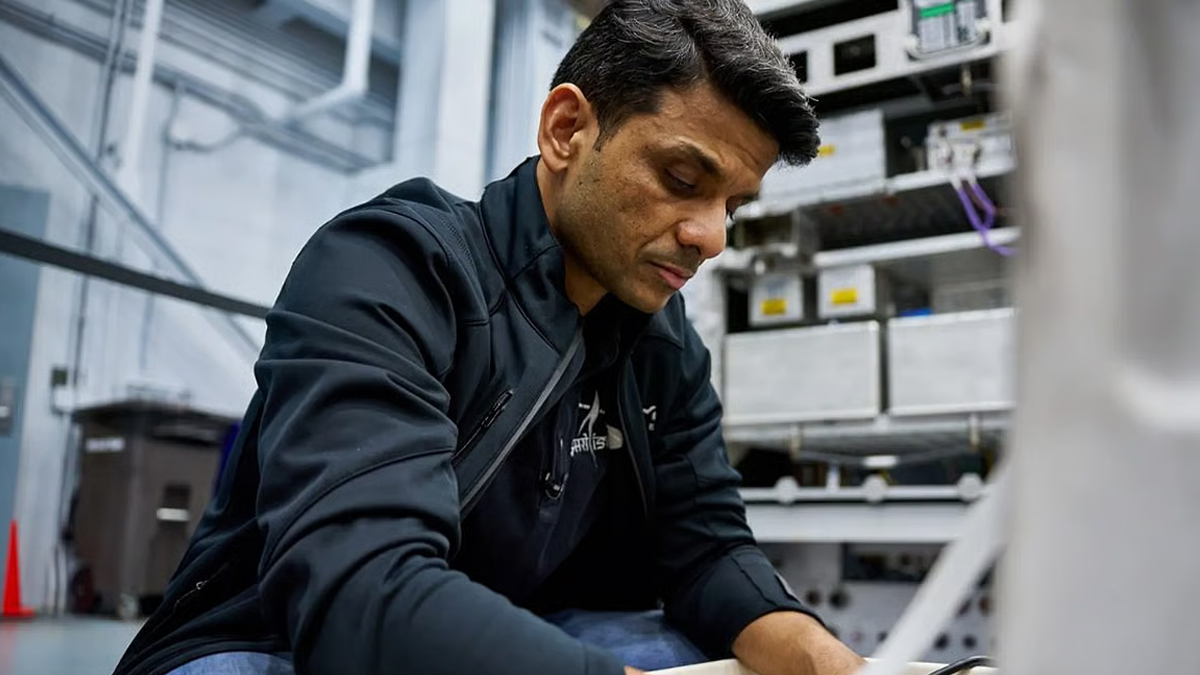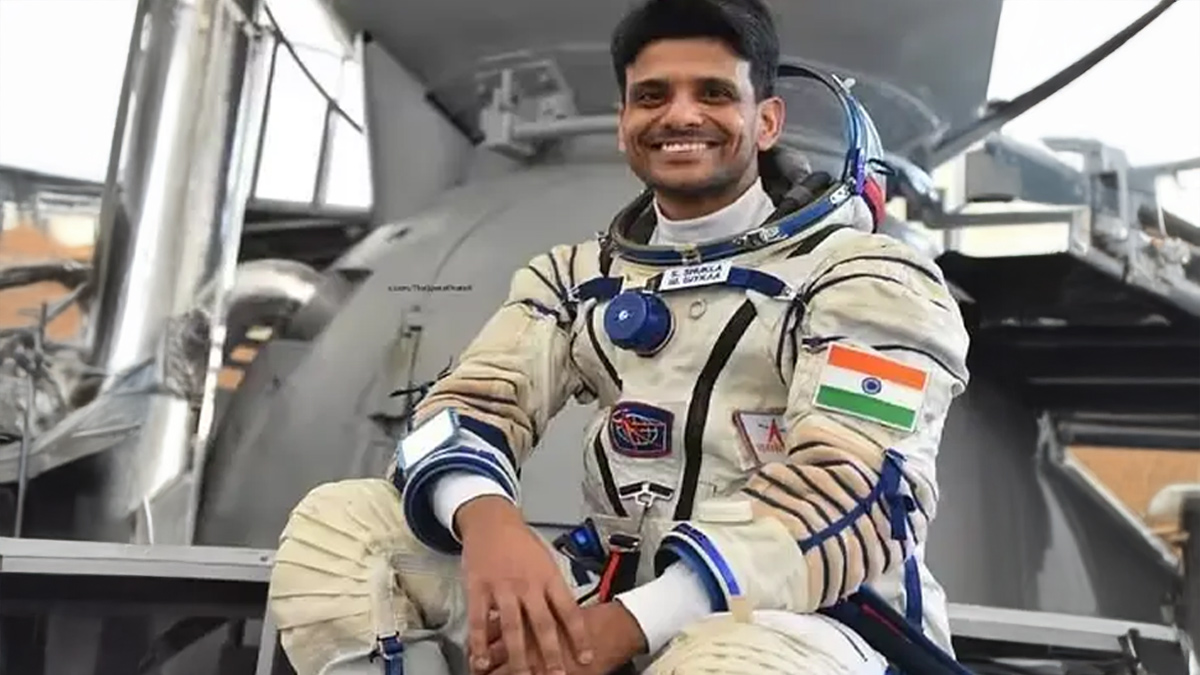-1752652046031.png)
Indian astronaut Group Captain Shubhanshu Shukla has made his country proud by becoming the first Indian to travel to the International Space Station (ISS) on a private spaceflight. He landed back after 18 days, after 288 orbits on the ISS and became a part of the history of India in going to space. His astounding endeavour has motivated a lot of people and set a new path towards Indian space activity, the next one being the Gaganyaan mission. After settling back into the Earth environment, it will be important to know how space travel affected his health, so as to receive the necessary care to recover and be ready to be deployed on the next mission.
Table of Content:-
The Impact of Space Travel on Shubhanshu Shukla’s Health
.#Ax4 Pilot Shubhanshu Shukla has made history as the first astronaut from India to conduct a mission aboard the International Space Station, inspiring the next generation of explorers. @isro pic.twitter.com/wCMZ3yD9WW
— Axiom Space (@Axiom_Space) July 15, 2025
Space travel will bring a severe challenge to the human body. Living in a microgravity environment on the ISS, the human body experiences a number of severe changes which could affect the health of an astronaut in case he or she returns to Earth.
Microgravity and the body![shubhanshu shukla in space 2 - 2025-07-16T132632.797]()
On Earth, the gravity is around 90 per cent less than in space. This gravitational loss leads to fluid shifting of the body towards the skull. This fluid redistribution causes astronauts to have a bloated face and nasal stuffiness on a regular basis. Besides, the muscles become weak since they do not have to stabilise the body weight as on Earth and this results in muscle atrophy and deteriorated bone density. This is because temporarily in space, the spine can lengthen a tiny bit, therefore, temporarily causing an increase in height.
Like other astronauts, Shubhanshu Shukla had to adapt to this microgravity at first. In the first couple of days of his stay, he felt a bit of space motion sickness as the brain adapts to relate balancing signals of the inner ear and eyes. These symptoms are normal and most of the time they go away as the astronaut adjusts to the weightless conditions.
Back To The Gravity Of The Earth
Mission Pilot Shubhanshu Shukla, turned 'waterbender', with Commander Peggy Whitson show us some tricks with water in the microgravity of space 😄 pic.twitter.com/hnc7voEG5R
— ISRO Spaceflight (@ISROSpaceflight) July 14, 2025
Returning to the Earth also has its own difficulties. The body has to adjust itself to gravity again when in space. To Shukla, this implies restoration of muscle strength, bone density, balance, and regular cardiac function. Once the SpaceX recovery vehicle reaches the water and people come aboard, they begin the first medical sensing. Thereafter, they undertake an individual reconditioning program which consists of methods of improving mobility, strength, balance and endurance.
Immediately after returning, astronauts experience dizziness, inability to stand still, and walk, and they also experience balance disorders. This is due to the fact that the brain and the human body have learned to disregard the signals of gravity in microgravity, and abruptly they have to learn to employ those signals again. Although they are more pronounced in the astronauts, who go on longer space missions, these effects on Shukla and his crew, as they orbited for 18 days, are likely to be milder.
Psychological and Other Changes
Gp Capt Shubhanshu Shukla:
— ISRO Spaceflight (@ISROSpaceflight) July 13, 2025
🗣 "41 years ago, an Indian went to space and told us how India looks like from space.
...and I can again tell you that today's India still appears Saare Jahan Se Accha" 🇮🇳
Watch this clip from the Axiom-4 Farewell Ceremony on the ISS 🎥 pic.twitter.com/nQMyfBy0YR
Psychological well-being and mental strength of astronauts contribute to their recovery as well. Adaptability of Space and Return: Shukla was well trained and disciplined into the Air Force as a Group Captain of the Air Force. There are studies regarding a possible visual alteration of astronauts owing to water distribution, which leads to an increase in the pressure of the skull during spaceflight. It is still relevant to follow these effects so as to maintain the long-term health of astronauts.
A study published in NPJ Microgravity looked at the physical impacts on astronaut health of short-term spaceflight. It was observed that microgravity affects the body by reducing the size of the muscles, and changes the cardiovascular system as well as creating difficulties with balance upon returning. It also pointed out how even short-term missions, such as three-week missions, could elicit perceptible physiological conditions that require medical assistance when returning home.
A human body can adjust to microgravity fairly quickly. Nonetheless, the adaptation contributes to the difficulties of adapting back to the gravity on Earth. Musculoskeletal and neurological symptoms that are encountered after landing require effective rehabilitation to be controlled.”
What Is Next For Shubhanshu Shukla?![what is next for shubhanshu shukla 3 - 2025-07-16T132637.710]()
During his recuperation process, Shukla will be subjected to medical tests and therapies to help him restore full body functions. This is to keep him healthy and prepare him in case of future missions to space through India.
His experience will provide informative data on how the Indian astronauts will handle the space trip, which will revolve around the training and medicine on the overall project of Gaganyaan. Finally, the study and control of the health effects of spaceflight will allow India to make a secure step forward on the path to human space exploration.
ALSO READ: Suki Waterhouse Hospitalised After Developing Hernia from Tight Pants: Exercises to Prevent Hernia
Conclusion
The return of Shubhanshu Shukla is making India feel proud, and the nation in the journey of space travel. There are quite substantial health issues in travelling in space, particularly readjustment to Earth's gravity, but these can be effectively overcome with appropriate treatment and rehabilitation. Not only is his mission an inspirational one, but it also brings forth Indian knowledge on human space travel and astronaut health, and this will be an eye-opener to greater ambitions in the future.
Also watch this video
How we keep this article up to date:
We work with experts and keep a close eye on the latest in health and wellness. Whenever there is a new research or helpful information, we update our articles with accurate and useful advice.
Current Version

